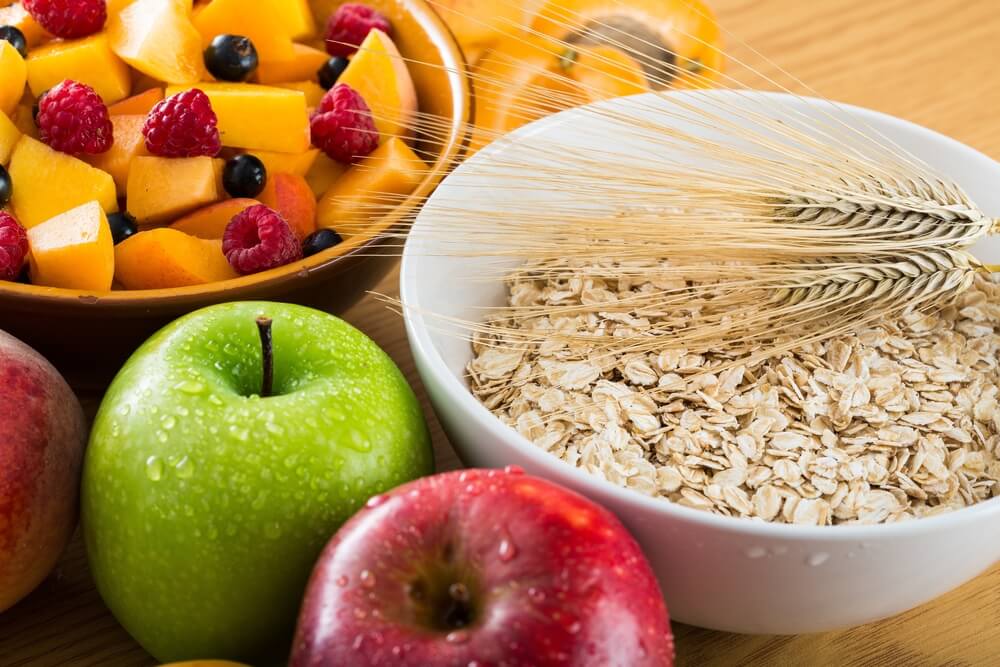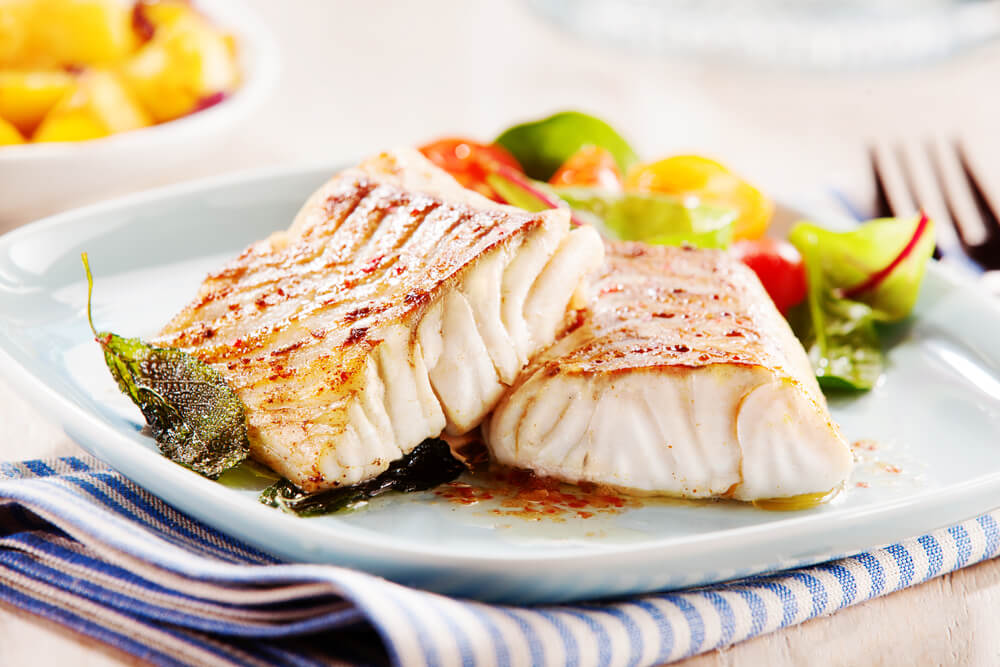Keeping your cholesterol low and at a safe level is crucial to your health as high cholesterol is often associated with cardiac events such as heart attacks and strokes. For some people, lowering cholesterol may require taking medications regularly. However, as more research becomes available, it is shown that cholesterol medications aren’t always necessary and do not have to be the only treatment for lowering cholesterol. Instead, many people can lower their cholesterol just as effectively with changes to their dietary habits. Below are 4 changes you can make to help reduce your cholesterol naturally.
1. Increase Your Fiber Intake
Fiber is a type of indigestible material found in many of the plant sources we eat. Although it might not be as digestible as protein or carbohydrates (carbs), fiber still plays an extremely important role in maintaining your health. As food travels through your gastrointestinal system, fiber grabs on to cholesterol. Instead of being absorbed into your bloodstream, cholesterol passes harmlessly through your system alongside fiber. Adding more sources of fiber to your diet can be an effective way of lowering your cholesterol.
Fiber is divided into two categories: soluble and insoluble. While insoluble fiber is not as beneficial for removing cholesterol as soluble fiber is, insoluble fiber is still important for improving blood sugar and aids in reducing colon cancer. You can find this type of fiber in foods like whole-wheat bread, beans, potatoes, and cauliflower. Soluble fiber does a great job of lowering cholesterol. You can find soluble fiber in oats, barley, peas, apples, carrots, and citrus fruit. Adding more fruits, vegetables, whole grains, and beans to your diet will help increase your fiber intake.

2. Eat More Healthy Fats
Cholesterol is a type of lipid, just like fats. This makes it no surprise that your fat intake can affect your cholesterol. Not all fats are viewed as equal. – saturated fats and trans fats can increase your harmful cholesterol levels, while unsaturated fats can keep cholesterol low and reduce risks for cardiovascular disease. Reducing your intake of unhealthy fats, such as saturated and trans fats, and increasing your intake of healthy unsaturated fats, can make a positive impact on reducing your cholesterol levels through changes in your diet.
The majority of unsaturated fats are found in plant sources such as olive oil, avocados, canola oil, flaxseed, and peanuts. Another excellent source for unsaturated fat is fish. Tuna, salmon, sardines and mackerel are considered polyunsaturated fats and all have very high amounts of omega-3 fatty acids. Because polyunsaturated fats are uniquely beneficial for heart health, cardiologists often recommend adding fish to your diet.
3. Reduce Consumption of Red Meat
LDL (low-density lipoprotein) cholesterol is also known as the “bad” cholesterol because it collects in the walls of your blood vessels and is known to clog your arteries. An essential part of any low LDL cholesterol diet is to reduce the amount of meat you eat as it increases LDL cholesterol. Trendy and popular diets, such as the keto diet, encourage dieters to eat significantly high-fat meals that include red meat. However, adopting a diet that consumes high amounts of red meat and other animal products, has been linked to much higher cholesterol and a variety of other health problems so it is always important to consult your physician before adopting these kinds of diets.
Most animal products, such as turkey and pork, cause some increase in cholesterol. However, red meat has a significant impact on increasing cholesterol. While reducing your intake of beef and pork, try substituting for fish or poultry in your recipes. A simple swap like chicken fajitas instead of beef fajitas can have a big impact on your overall cholesterol.
4. Increase Consumption of Fish and Plant-Based Meals
As previously mentioned, many foods that reduce cholesterol are found in plants. A diet focusing on lowering LDL cholesterol encourages increasing the frequency of plant-based or fish-based meals in your diet. By doing so, it does not mean you have to commit to a vegetarian, pescatarian or vegan lifestyle – it simply encourages reducing the consumption of unhealthy saturated and trans fats that come from animal products, such as red meat, and increasing consumption of healthy unsaturated and polysaturated fats like fish. Fish contains several compounds, including polyunsaturated fats, that help lower cholesterol.
In order to increase your healthy fats, focus on creating meals that contain beans, whole grains, fruits, and vegetables. Adding fish to plant-based meals is often referred to as a Mediterranean or pescatarian diet and increases your intake of healthy fats. Picking low carb, low cholesterol foods can also be beneficial for controlling blood sugar, but don’t feel like you need to completely remove carbs from your diet. Moderation is key.

Meal Ideas to Lower LDL Cholesterol
Adjusting to follow a “cardiologist’s diet” does come with flexibility in the types of meals you can make. With emphasis on eating the right amounts of specific food groups, without entirely cutting out other groups, you can easily find meals that work for you. For a cholesterol-free breakfast, consider a bowl of oatmeal topped with some fresh strawberries and a sprinkle of flaked almonds. Other great low cholesterol breakfast ideas can include whole-grain toast topped with avocado, smoked salmon on a whole-wheat bagel or apple bran muffins.
There are other options for fast and easy low-cholesterol lunches. Some people like to make quinoa salad, three-bean chili or whole-wheat pasta and limit themselves to one serving each day. You can also do quick, on-the-go options like a whole-wheat tuna wrap, a niçoise salad or nut butter sandwich. Snacks like carrot sticks, roasted cashews, mandarin oranges, or apples all provide a filling snack in between meals and contribute to lowering cholesterol.
For delicious, satisfying dinners, you can try a simple and versatile option using a fillet of fish, seasoned to your liking, and served alongside a hearty helping of roasted vegetables. You can also experiment with fun choices like lentil curry over brown rice or a hearty chicken minestrone soup.
Your health is a priority for TopLine MD Alliance affiliated providers. If you are worried about your cholesterol levels, our highly qualified physicians are available to help with screenings and health recommendations. For more information on available services, or to schedule an appointment, search our directory to find a TopLine MD affiliated provider near you!
The TopLine MD Alliance is an association of independent physicians and medical practice groups who are committed to providing a higher standard of healthcare services. The members of the TopLine MD Alliance have no legal or financial relationship with one another. The TopLine MD Alliance brand has no formal corporate, financial or legal ties to any of the affiliated physicians or practice groups.



